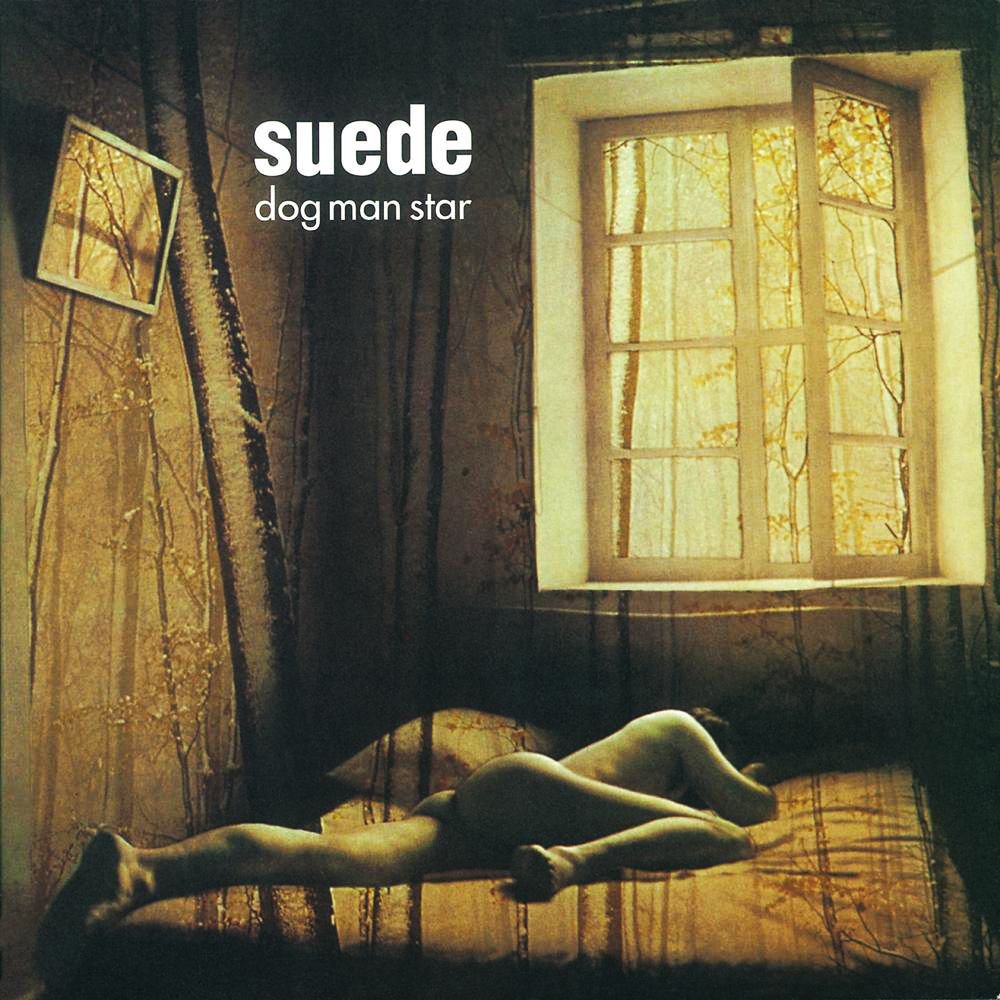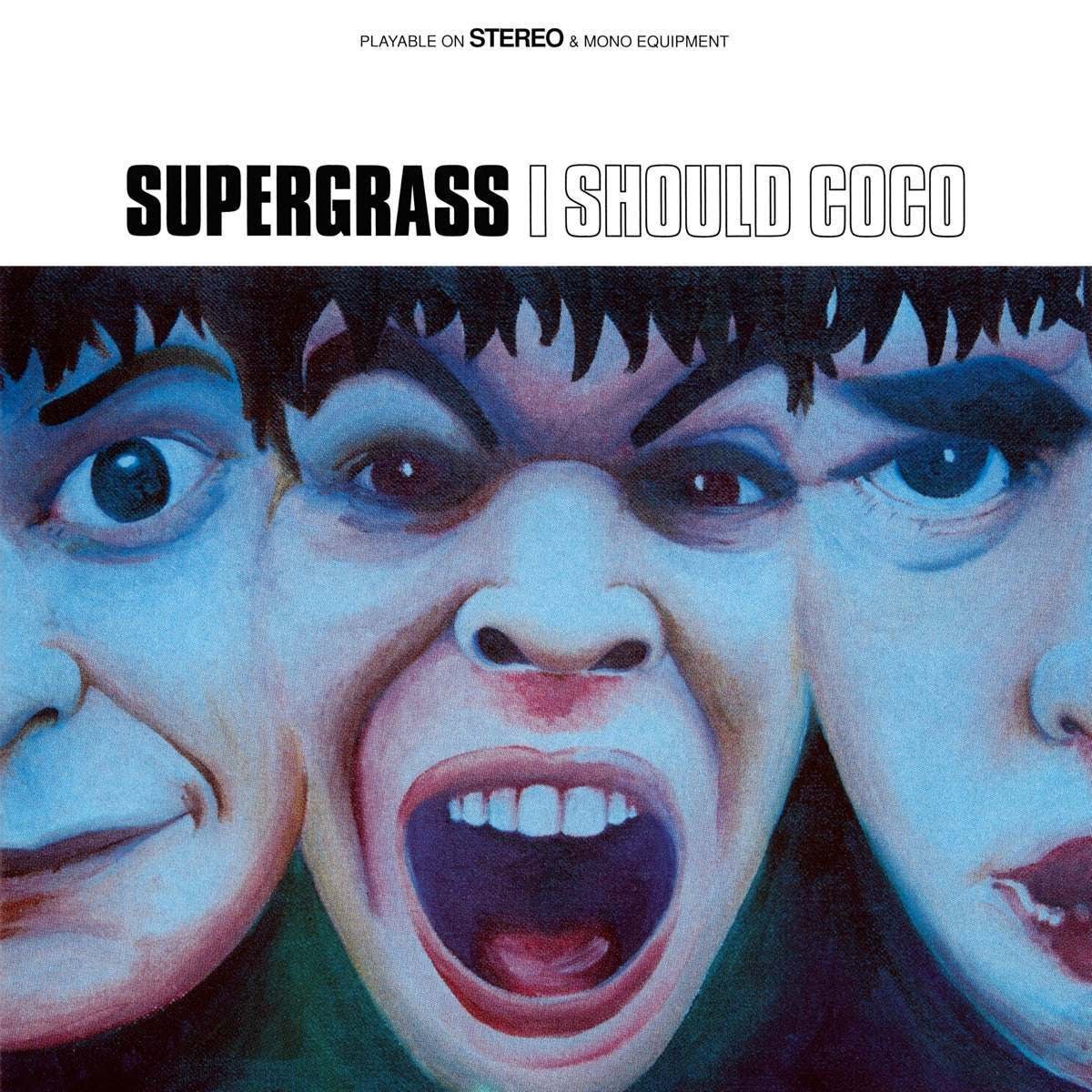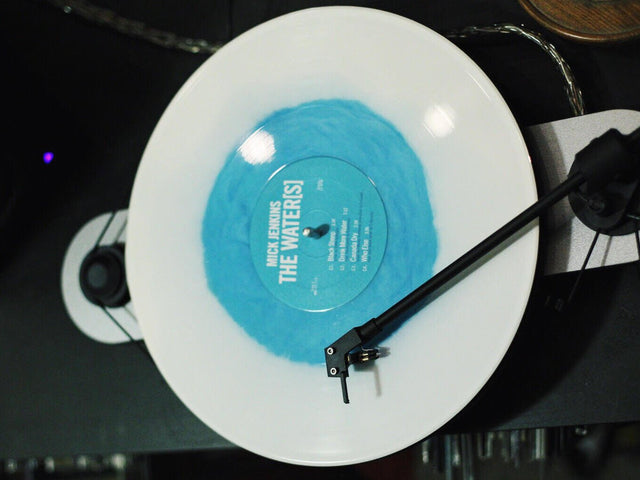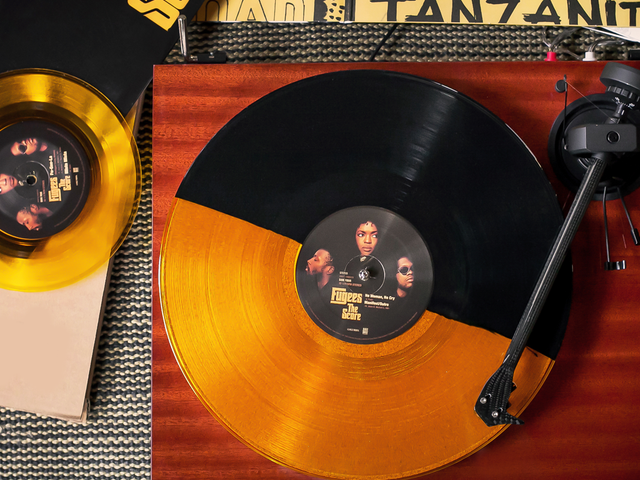1990년대 초 런던의 퍼키 펍에서 태어난 브릿 팝의 창백한 팝 송은 영국 생활의 완벽한 사운드트랙을 제공했습니다. 그러나 모든 것이 우울하고 어두운 것만은 아니었습니다: 오아시스, 블러, 그리고 스웨이드와 같은 밴드들은 세상이 이전에 경험하지 못한 자신감 넘치는 모습을 보여주었습니다. 그들의 대형 공연의 앤세럼은 비틀즈와 맨체스터의 수십 년을 기반으로 했지만, 그들만의 독특한 색을 정의했습니다. 이 정돈되지 않은 장르는 곧 너무 성공적이 되어 바닥에 내리꽂힐 위기에 처하게 되었습니다. 브릿팝은 90년대가 끝날 무렵 사라졌지만, 그 불꽃은 결코 완전히 꺼지지 않았습니다. 이 열 개의 앨범이 증명하듯, 브릿팝의 가장 크고 최고의 밴드들의 음악과 사고방식은 여전히 향수와 잃어버린 날들에 대한 그리움을 불러일으키며, 또한 다시 올 더 나은 날들에 대한 희망의 이유로 작용합니다.

The La’s: The La’s
이 장르는 곧 다른 음악적 세력과 독립적인 현상이 될 것이지만, 리버풀의 4인조인 La’s의 1990년 동명의 데뷔작은 브릿팝과 리프 및 레이브의 초기 시대 간의 다리를 형성하는 데 성공했습니다. 스톤 로지스와 스미스스에서 영감을 받으면서도 “Son of a Gun”과 같은 직설적인 곡은 비틀즈와 킨크스를 혼합하여 오아시스 같은 밴드가 이후 몇 년 동안 상업화할 음료를 창조했습니다. “There She Goes”와 같은 명백히 행복한 발라드를 통해 La’s는 영국 기타 음악의 미래를 예고했습니다. 이 밴드는 브릿팝 밴드들이 한 세대 동안 타고 넘을 파도를 만들었습니다. 안타깝게도, 리 마버스가 이끄는 이 밴드는 스스로 그 시기를 목격하지 못하게 되었습니다. 1992년경, La’s는 흔적도 없이 사라졌지만, 그들은 확실히 영국 음악에 족적을 남겼습니다.

Suede: Dog Man Star
그 지평선의 첫 번째 혜택을 본 것은 브렛 앤더슨, 브릿팝의 첫 스타였습니다. Suede의 프런트맨은 1993년 4월 Select의 “Yanks Go Home!” 호의 표지를 장식했습니다. 앤더슨은 자신이 갇힌 스타덤에 대해 실망하게 되었습니다. 그는 Suede의 작곡가이자 기타리스트인 버나드 버틀러와 사이가 틀어지고, 자신의 고립감을 담은 1994년의 Dog Man Star를 만들었습니다. 슬픈 경치와 가장 섹시한 교향곡으로 구성된 이 앨범은 버틀러가 결국 밴드를 떠나기로 결정했을 때, 완성되지 않은 상태에서 일종의 이별 레코드로 돌변했습니다. Dog Man Star는 확실히 다소 과도하게 보일 수도 있습니다. 그렇지만, Suede의 포인트는 슬픔을 신성시하는 것이었습니다.

Blur: Parklife
브릿팝의 별이 한 개 떨어지자, 다른 별이 기꺼이 그 자리를 차지했습니다. 다양한 팝송의 팔레트를 가진 런던의 소년들인 Blur는 브릿팝의 포스터 보이로 떠올랐습니다. Parklife는 기타 음악을 주류로 옮기는 과정 뒤에 있는 다채로운 촉매제가 되었습니다. 1994년 앨범에서 Blur는 이전 앨범에서 암시했던 깊이와 다양성을 선보이며 “Girls & Boys”와 같은 디스코 곡, 타이틀 트랙과 같은 야심 찬 앤헴, 그리고 가장 영국적인 이별 노래들을 포함했습니다. 한 때 슈게이즈 아트 스쿨 학생들이었던 그들은 갑작스럽게 영국의 스타가 되어 현재 우리가 알고 있는 브릿팝을 형성했습니다. 물론 오아시스도 그 과정에 일조했지만, 상업적으로 성공적인 그들의 작업은 상대적으로 보수적인 반면, Blur는 Parklife 이후 창의성으로 전부가 되었습니다.

Oasis: (What’s The Story) Morning Glory
음악에서 가장 고집 센 신화 중 하나는 성공적인 두 번째 앨범을 쓰는 것이 어렵다는 것입니다. 이를 반박한 밴드가 있다면, 그것은 오아시스입니다. 오아시스는 브릿팝 운동의 가장 큰 밴드 중 하나일 뿐만 아니라 역사상 가장 큰 록 밴드 중 하나입니다. 갤러거 형제의 1995년 클래식 (What’s The Story) Morning Glory는 1994년의 Definitely Maybe의 후속작으로 연습이 완벽함을 증명했습니다. 이 앨범은 상징적이고 아이러니하게 변한 "Wonderwall"과 "Don’t Look Back In Anger"를 특징으로 하며, 큰 히트곡들의 모음이자 뛰어난 노엘 갤러거의 놀라운 반영적 작곡의 집합입니다. 예를 들어, 앨범의 마무리인 "Champagne Supernova"는 브릿팝 발라드 중 가장 뛰어난 곡 중 하나입니다. 밴드와 앨범은 여러 면에서 장르 전체를 상징하며, 금방 사라질 것임을 이미 아는 좋은 시간을 기념합니다.

Radiohead: The Bends
Radiohead는 아마도 브릿팝 레코드를 발매한 가장 브릿팝과는 거리가 먼 밴드일 것입니다. 그러나 옥스포드의 괴짜들도 장르의 만연함을 저항할 수 없었고, 1995년의 The Bends는 그들의 얼트 록과 그런지에 빚진 데뷔작 Pablo Honey에서 상당히 발전했습니다. 브릿팝으로 전환하게 된 그들은 탐 요크와 동료들이 가장 훌륭한 브릿팝 레코드 중 하나를 발매할 수밖에 없었습니다. The Bends는 “High and Dry”와 “Fake Plastic Trees”와 같은 몽환적으로 아름다운 발라드를 특징으로 하며, 놀라운 싱글이자 앨범의 마무리 곡인 “Street Spirit (Fade Out)”과 같이 극도로 드라마틱하고 불안한 곡들도 포함되어 있습니다. 이는 밴드가 쓴 가장 우울한 노래 중 하나라는 점에서 많은 것을 말해줍니다. 결국, 절박함으로 가득 찬 The Bends는 Radiohead가 아마도 결코 꿈꾸지 않았던 꿈을 이뤘습니다: "자신의 꿈"(Nice Dream), "Just", "My Iron Lung"이 포함된 마법 같은 중간 섹션이 있는 이 앨범은 1997년의 OK Computer의 서곡으로, Radiohead의 지구에서 가장 큰 밴드 중 하나로서의 지위를 확보했습니다. 그들의 가장 기발하거나 실험적인 앨범과는 거리가 멀지만, The Bends는 Radiohead의 놀라운 중요성의 시작입니다.

Pulp: Different Class
다른 어떤 것과는 다르게, 브릿팝 밴드는 사회적 동기를 가진 분노를 노래와 함께 가릴 수 있었습니다. 그 분야의 장인은 Pulp의 자비스 커커, 운동의 가장 만화 같은 캐릭터 중 한 명이었습니다. Pulp는 12년 간의 긴 시간 후에 1995년 걸작 Different Class로 익명성을 버리고 명성을 얻게 되었습니다. 15세에 Pulp를 결성한 커커는 곧 브릿팝의 서사적 리더 중 한 명이 되었고, 매 새로운 문장에서 섹시함과 날카로움을 오가며 가사를 썼습니다. 이러한 문장들은 Pulp의 상승하는 신시사이저 멜로디가 인도한 경우가 많았으며, 동시에 화려하고 거칠게 들릴 수 있도록 만들었습니다. Different Class는 마지막 순간의 글래스턴베리 헤드라인 세트 뒤 몇 달 후에 도착하여, 밴드에게 슈퍼스타의 지위를 가져다주었습니다. 이 앨범은 Pulp 팬클럽의 회장을 맡고 있는 마크 웨버가 기타를 연주한 첫 번째 앨범입니다. “Common People”과 “Disco 2000”과 같은 주요 히트 싱글 덕분에 커커와 그 동료들은 다시는 자신들이 일반인으로 오해받지 않게 되었습니다. 대신, 사회 비판과 성적 서사를 결합한 Different Class는 겉으로는 쾌락으로, 내면에서는 공황으로 대비되었던 언더독의 승리의 이야기를 만들어냈습니다.

Supergrass: I Should Coco
브릿팝이 복잡한 코드 진행으로 알려진 장르는 아니지만, 옥스포드 밴드 Supergrass는 분명 가장 날카로운 브릿팝 밴드 중 하나입니다. 1995년의 데뷔 앨범 I Should Coco, “Alright”의 메가 히트를 특징으로 하는 이 앨범은 간단하고 신속합니다: 대부분의 곡은 3분 이하이며, 세 개 이상의 코드를 포함하지 않습니다. 이들의 맹렬한 에너지는 Supergrass의 레코딩 속도를 반영하고 있습니다: “Sofa (Of My Lethargy)”와 같은 6분 길이의 곡은 단 한 번의 테이크로 녹음되었습니다. 앨범의 젊은 생명력은 또한 밴드 멤버들이 십대 및 이십대 초반일 때 그들의 첫 트랙인 반자전적 “Caught by the Fuzz”에서 발휘된 바 있습니다. 이 곡은 브릿팝의 친구인 Blur와 Elastica가 칭찬하였으며, I Should Coco에도 포함되어 있습니다.

Elastica: Elastica
브릿팝 밴드가 잘하는 것이 있다면, 그것은 영국 젊은이들이 일상의 고난을 잊고 더 큰 꿈을 꿀 수 있도록 돕는 것이었습니다. 가장 이를 잘했던 밴드는 런던의 Elastica였습니다. Elastica는 1992년에 전 Suede 멤버인 저스틴 프리쉬만과 저스틴 웰치에 의해 설립되었습니다. Elastica의 첫 번째 LP는 1995년 3월에 발매되었고, 오아시스의 Definitely Maybe 이후 가장 빠르게 팔린 데뷔 앨범이 되었습니다. 재밌는 방식으로 와이어 앨범의 버전처럼 들리는 이 앨범은 성에 관한 팝적인 펑크송으로 가득 차 있습니다. 정확히 40분 동안 16곡이 수록되어 있습니다. 프리쉬만은 자신의 말이 무엇인지 잘 알고 있었습니다: 처음에 Suede의 브렛 앤더슨과의 로맨틱한 파트너였으나, 나중에는 Blur의 데이먼 알반과의 관계로 브릿팝의 퍼스트 레이디가 되었습니다. 그러나 90년대 후반에는 프리쉬만과 알반의 달콤한 관계가 망가지면서 참으로 쿨 브리태니아의 정의였던 밴드가 2000년의 두 번째 앨범인 The Menace로 정당하지 못한 평가를 받게 되었습니다.

Manic Street Preachers: Everything Must Go
브릿팝이 새로운 영국 기타 음악을 위한 길을 만들었지만, 모든 밴드가 그 운동과 기꺼이 연관되지 않았습니다. 그 중 하나가 바로 Manic Street Preachers로, 그들은 노동계급을 경시하는 브릿팝을 싫어했습니다. 그러나 모든 불리한 상황 속에서도, 베이시스트이자 작사가인 니키 와이어는 가장 친한 친구인 틴더라는 만인 베이시스트 리치 에드워즈의 갑작스러운 실종과 추정되는 죽음 직후에 슬픔을 명예로 변모하는 데 성공했습니다. 1996년의 Everything Must Go는 에드워즈의 사망 1년 후에 발매되었으며, 여러 곡에서 그가 쓴 유서가 담긴 가사가 포함되어 있습니다. 예를 들어, Small Black Flowers That Grow Into The Sky는 포로 동물에 관한 곡입니다. 똑똑하게 상업적인 파워 팝의 이 앨범은 여기저기에 텍스트적인 틈을 숨기고 있으며, 자살에 대한 사진 기자와 알츠하이머를 앓는 예술가에 관한 곡이 포함되어 있습니다. pitch-black한 배경에도 불구하고, 이 앨범은 애도의 걸작으로 칭송받았으며 영국 주류에서 파장을 일으켰습니다. 그것은 남은 세 명의 잔인한 리치 에드워즈에 대한 눈물겨운 헌사이며, Everything Must Go가 계속되어야 함을 상기시킵니다.

The Verve: Urban Hymns
대부분의 브릿팝 음악가들은 꽤 겸손한 생활에서 왔지만, 그들이 스스로 메시아로 혼란스러워할 때 가장 잘 성공하는 것 같습니다. The Verve의 리차드 애시크로프트는 오아시스의 (What’s The Story) Morning Glory에서 노엘 갤러거가 쓴 “Cast No Shadow”의 영감으로 가장 좋은 예입니다. 그의 밴드의 마그넘 오푸스인 Urban Hymns에서도 제목에서 앨범이 어떤 형태의 대중적인 기능을 가지고 마음을 열어, 삶의 의미를 들려줍니다. Bittersweet Symphony와 같은 곡의 샘플이 포함된 이 앨범과 그 뒤의 곡의 이상하고 동시에 멋진 점은? 애시크로프트의 흔들림 없는 자기 신념 덕분에 그가 진실을 말하고 있다는 의심의 여지가 없습니다. 애시크로프트는 이 호화로운 사랑 노래를 가장 중요한 노래인 것처럼 연주하기 때문에, 이 곡들이 듣기에 웃기지 않게 만들고, 그의 긴 경력에서의 강력한 정점으로 끌어올리며, 마지막으로 진정한 브릿팝 앨범 중 하나로서 빛을 보았습니다.



